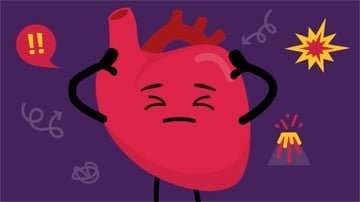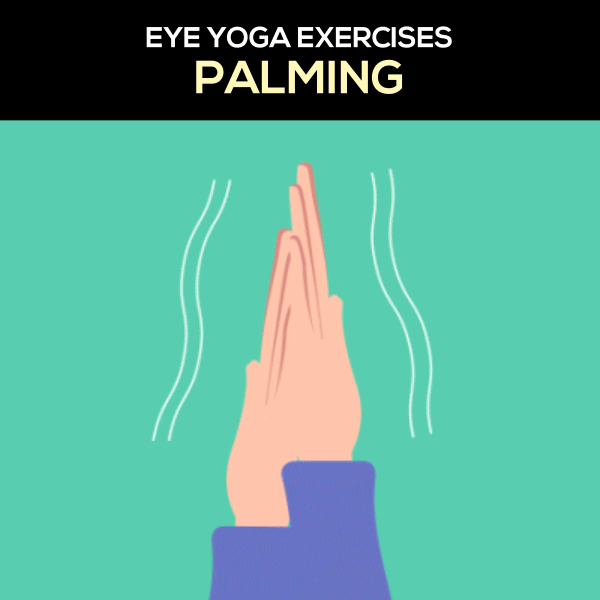
There are many forms of yoga, and you can do a form of it every day, no matter where you are. Yoga isn't just physical. It can also be mental. Yoga can be practiced in many forms, including mental discipline and self-awareness. You can feel the pavement under your feet or the sensations you have in your feet. It doesn't take much to make a difference, even if you only do it for a few minutes each day. If you practice yoga regularly, you will find that it becomes a natural part of your life.
Regularity is more important than length of practice
This study sought to determine if yoga practice increases emotion regulation. Personality traits, such as extraversion and conscientiousness, may affect the relationship between yoga training duration and emotion regulation. The study enrolled 90 women, who completed an Emotion Regulation Questionnaire to assess their self-regulation strategies. Study results revealed that yoga training over a longer period of time was associated with increased self-regulation. It also had a lower level of frustration, pessimism, irritation.
Yoga is an excellent way to relieve pain and improve health. It improves one's ability to respond quickly to injury or illness and increases your reaction time. Regular practice is beneficial for people with arthritis and helps to prevent degenerative arthritis. The breathing techniques involved in yoga are essentially "squeezing" and "soaking" areas of joint cartilage. Over time, cartilage becomes exposed and worn down. This can prove to be very dangerous.

The key to regular yoga practice is consistency. It may seem daunting at first but this discipline will last a lifetime. It's possible to increase your awareness and strengthen the mind-body connection through yoga practice twice a week. You'll see the benefits more you practice. You can practice yoga at home or with a certified instructor. You don't have to attend classes or practice at your home. What matters is that you stay consistent.
A routine will help you to determine what you can accomplish.
You can make the most out of your limited resources by creating a daily routine. Routines help you to be more focused, disciplined, and optimistic. They help you create a routine for your mental energy and keep you from getting sucked into the trap of low moods. Tim Ferris is a productivity guru who recommends five morning routines to get you started. Tony Robbins suggests that you do breathing exercises, meditation and take cold showers to start your day.
There are many benefits to practicing yoga every day. Yoga is an excellent way to keep fit, mentally and spiritually healthy, and emotionally strong. It's affordable and easy to incorporate into your daily routine. It takes less than 15 minutes. Yoga is not difficult and does not require an expensive studio membership. You can do it, no matter if you are a beginner or an experienced practitioner.
Developing a routine helps you develop a happier 'you'
Routines are a way to make the most of your limited resources, such as time, willpower, optimism, and self-discipline. They also help you develop healthier habits. It creates a routine for your mental energies, keeping them from getting lost in the tyranny and mood. Tony Robbins, Amy Morin and other productivity experts have different methods to help you build healthy routines into every day.

A routine will help to stick to your work schedule and increase productivity. You will also feel more relaxed and have a better quality sleep. It can help you stay on track. You can reap many benefits from creating a routine. These are just some of the many benefits that routines can bring. Once you have a routine in place, it's easier to stick with it. But there are more!
FAQ
How do you know if you have a mental illness?
A person may be diagnosed with a mental illness when they experience symptoms that interfere with their daily activities. The symptoms of mental illnesses can vary from one person to another. The most common signs are: sadness and anxiety; feeling guilty, hopeless; lonely; depressed; confused; worthless; guilty, suicidal.
A person could also be diagnosed with mental disorders if they meet the following criteria:
-
Disturbed feelings or thoughts
-
Unruly behavior
-
Disturbance of functioning
-
Ability to communicate with others impaired
Why is mental health important?
Play, work, learning, and love are all important. Our mental health is a reflection of our overall well-being. The physical, psychological as well as social, spiritual and environmental factors that influence us every day are all part of mental health. There are many options for taking care of yourself mentally and physically as well as emotionally, spiritually, financially, and socially. It's not necessary to do all the things at once. You can just start!
Understanding where your mental health stands now is the first step toward improving it. This quiz will help you determine if you are doing enough to improve your mental health. If your score is low, you may want to make some lifestyle changes.
Imagine you have scored high. Let's now look at what you can do to maintain or improve your mental health.
-
Get enough rest. Get enough sleep to keep your brain alert and stimulated. The American Academy of Pediatrics (AAP), recommends that children get 7 to 8 hours of sleep per night.
-
Exercise Regularly. Exercise releases endorphins which can make you happy and less likely be stressed. You should aim to exercise for 30 minutes five times a week.
Is it more important to have mental health than work?
Working is stressful and mental health is crucial. It is important to take time to relax, whether you're at work or with friends.
Talk to your boss or supervisor if you feel stressed. You might find ways to reduce your stress.
Your physical health is important too. It is important to eat well, exercise regularly, and get enough rest.
Why is it so important that we improve our emotional health
Emotional health is essential for happiness and well-being. Without emotional health, you will not be able work at your best. People suffering from depression often feel unable or unwilling to work. People with depression may also have anxiety, panic attacks and insomnia. These conditions can be successfully managed with medication and therapy.
What is Positive Psychology? Why is it Important?
Positive psychology focuses on what makes us feel better about ourselves, such as happiness, optimism, gratitude, hope, love, kindness, compassion, forgiveness, courage, humility, curiosity, empathy, spirituality, and meaning. Positive psychology seeks to make individuals happier, healthier and more intelligent through self-improvement.
There are two types if positive psychology: trait-positive psychology and process-positive psychology. Trait psychology studies how people naturally behave. Process positive psychology studies how we can use certain strategies to achieve specific goals.
How can I improve my mental health?
It is vital to maintain mental health, especially for those who are stressed from school, work, and family. Regular exercise, healthy eating, quality sleep, and spending time with loved ones are the best ways to improve your mental well-being. Exercise releases endorphins, which can make us happier. Good nutrition is essential for a healthy body. Good sleep gives us energy all day. Spending time with our loved ones is a great way to improve our relationships, and it reduces stress.
Statistics
- According to the National Alliance of Mental Illness (NAMI), one in five Americans experiences mental health issues which translates to more than 40 million adults a year. (doctorondemand.com)
- In any given year, an estimated 18.1% (43.6 million) of U.S. adults ages 18 years or older suffered from any mental illness, and 4.2% (9.8 million) (healthypeople.gov)
- More than 40 million adults in the United States have an anxiety disorder, but less than 37% of people seek mental health treatment for their symptoms. (talkspace.com)
- Similarly, for positive mental health, there is likely to be substantial agreement about some typical components (e.g., resilience to stress) 6, and controversy about more atypical components (e.g., career consolidation). (ncbi.nlm.nih.gov)
- Neuropsychiatric diseases are the leading cause of death and disability in the U.S., accounting for 18.7 percent of all years of potential lifespan loss and premature mortality.
External Links
How To
What is the best way to improve your mental health?
Mental health refers the state of your mind, and emotional well-being. It affects your mood, behavior, thoughts, actions, relationships, sleep, eat and work.
Everyone should be concerned about mental health. Depression is often referred to when talking about mental health. Depression is a serious illness that affects millions of Americans every year.
The term clinical depression is used to describe depression. It requires treatment by a physician. However, there are many forms and severity levels of depression.
The National Institute of Mental Health (NIMH) defines depression as "a common mood disorder characterized by a depressed mood most of the day nearly every day, loss of interest or pleasure in almost all activities, feelings of guilt or low self-worth, disturbed sleep or appetite, poor concentration, and thoughts of death or suicide."
Different people may experience depression in different ways. People may feel sad, helpless, irritable and anxious. They might also feel worthless, guilt, worthless or tired. Others may feel empty and unmotivated. Others might feel nothing.
Depression can be treated. There are many treatments for depression, including medication, psychotherapy as well as diet and lifestyle modifications that can help. If left untreated depression can cause severe problems at work, home, and in relationships.
Depression is more common in females than in men. However, both men and women can be affected. Depression is the leading cause for disability worldwide in men and women aged 15-44 years.